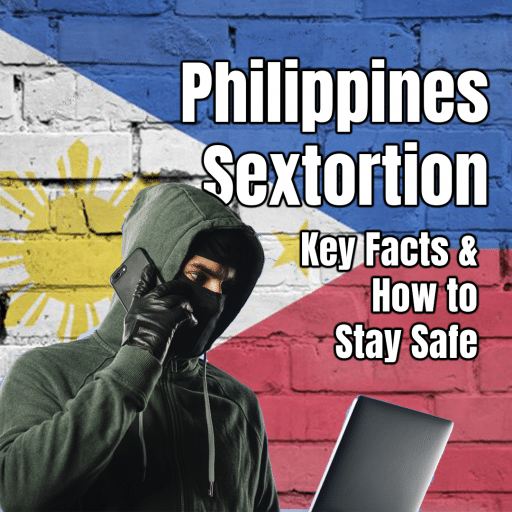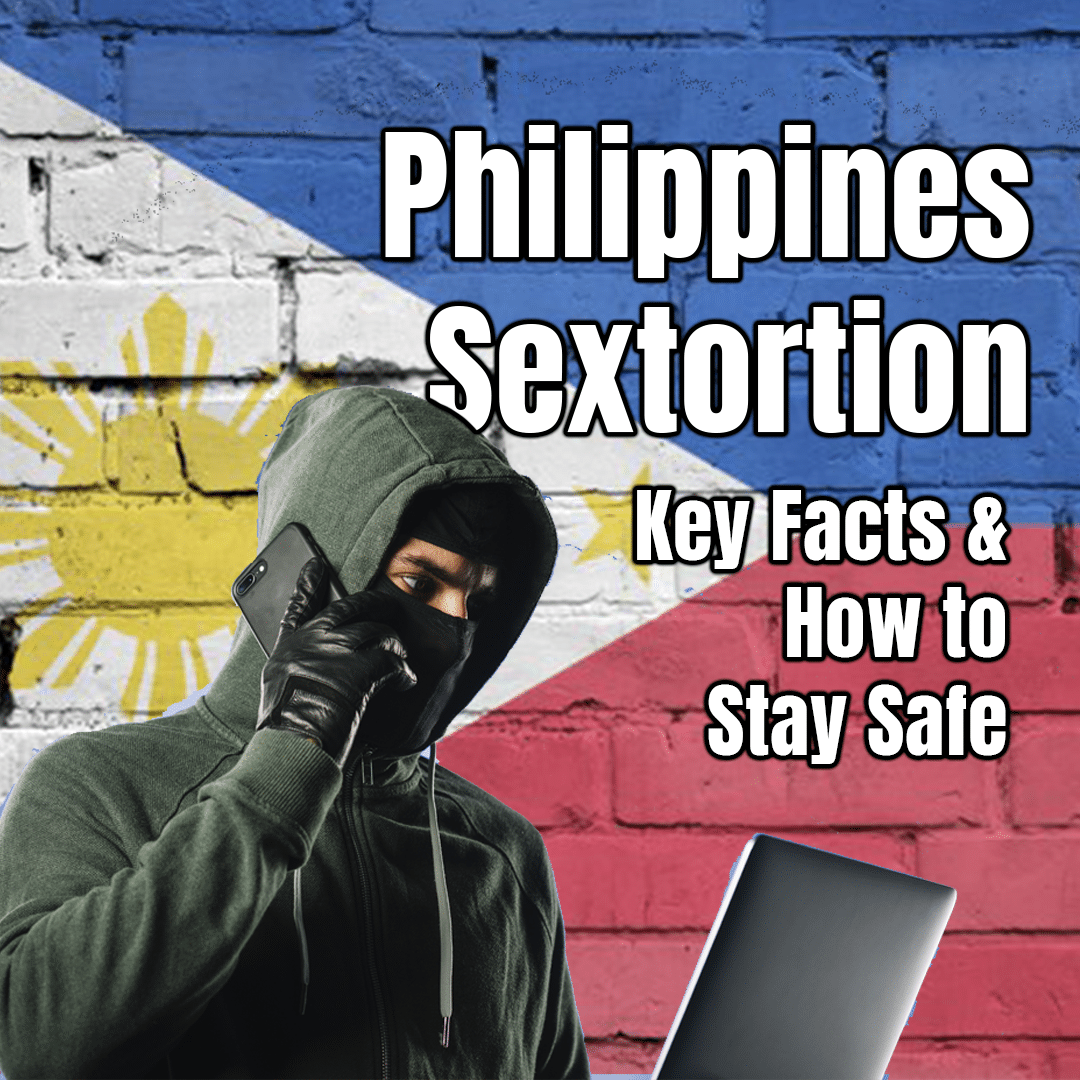Sextortion scams have become a booming underground industry in the Philippines. Fueled by organized cybercrime syndicates, economic inequality, and increased internet access, these crimes have drawn global attention.
The Philippines’ emergence as a sextortion hotspot raises critical questions: Why are these scams growing, and why can’t authorities stop them? Let’s break it down.
Why the Philippines is a Sextortion Hotspot?
Filipino scammers are notorious for their creativity and adaptability, leveraging advanced skills, resources, and technology to exploit victims worldwide.
High English Proficiency
As one of the largest English-speaking nations, the Philippines ranks among the top in English proficiency in Asia. Scammers use fluent English, pre-written scripts, or translation tools to sound convincing, especially to victims in the U.S., U.K., and Australia.
Organized Cybercrime Rings
The rise of scam call centers tied to the digital gambling industry has contributed significantly to sextortion crimes. These syndicates operate illegal call centers, often forcing locals and foreigners to work under abusive conditions, executing scams at scale.
Weak Cybersecurity Laws and Enforcement
Despite laws against sextortion, enforcement remains a challenge. Gaps in cybersecurity awareness and resources are a hinderance. Though their government has taken steps to try to combat the criminal organizations conducting these scams, Philippines law enforcement is finding this challenging.
In March of 2024, Filipino law enforcement officials raided a scam farm rescuing 658 victims who were being forced to conduct sextortion and Pig Butchering Scams using fraudulent profiles featuring their real photos(1). While this was a great success, there is evidence of many more of these scammer farms existing throughout the country masquerading as legitimate business.
Who Are the Targets?
Filipino sextortion scammers often target:
- Foreign men from countries like the U.S., U.K., and Australia.
- Young social media users who spend hours online.
- LGBTQ+ individuals on dating apps like Grindr.
- Older men seeking partners with “Asian qualities.”
“The scale of these sextortion networks is massive, driven purely by profit without regard for the emotional harm caused,” Sanjay Virmani, director of Interpol’s Digital Crime Center.
How Filipino Scammers Operate
Filipino scammers rely on tactics designed to build trust before exploiting victims.
- Posing as friends or lovers: Scammers use real profiles or pretend to be relatives or customs officers to gain credibility.
- Love bombing: They shower victims with attention to build trust before sending intimate photos and asking for the same in return.
- Phishing links: Victims are often tricked into clicking links that install malware to collect sensitive data.
Once they have compromising material, scammers threaten to release it unless their demands are met.
Common Platforms Used
Scammers favor platforms that offer a large user base and anonymity, including:
- Social media: Facebook, WhatsApp, and Instagram.
- Dating apps: Tinder and Grindr.
- Encrypted messaging apps: Telegram, known for its privacy features.
Unique Tactics and Red Flags
Filipino sextortion scams often stand out due to these specific tactics:
- Pretending to be OFWs (Overseas Filipino Workers): Scammers create fake profiles of OFWs, telling emotional stories about hardships to gain sympathy.
- Fast escalation to sexual topics: Conversations quickly turn intimate, often within an hour, leading to video calls where victims are manipulated into compromising situations.
- Fake legal threats: Scammers claim the victim violated Philippine cyber laws, threatening to involve local police like the Philippine National Police (PNP) or National Bureau of Investigation (NBI).
- Using Real People in Scams: Unlike Nigerian sextortion scams or Sextortion Scams from the Ivory Coast that typically rely on fake, stolen, or AI-generated profile pictures and videos, Filipino sextortion scams sometimes involve trafficking victims. These individuals are exploited to add a layer of authenticity to the scam, making it more convincing. This tactic makes it harder for potential victims to rely on common dating safety practices, such as conducting reverse image searches, to verify a person’s identity and avoid being scammed.
What Victims of Filipino Sextortion Scams Should Know
Philippine laws offer some protection against sextortion but aren’t always effective for international victims:
- Anti-Photo and Video Voyeurism Act (RA 9995): Criminalizes non-consensual recording and sharing of intimate images. However, it doesn’t fully protect victims who voluntarily shared content before being blackmailed.
- Cybercrime Prevention Act (RA 10175): Covers a wide range of cybercrimes, including sextortion, but enforcement is difficult due to the global nature of these crimes.
- Philippine National Police (PNP): The PNP Anti-Cybercrime Group has partnered with international law enforcement to combat sextortion but faces challenges with cross-border evidence and extradition.
Steps to Take if You’re a Victim
If you’ve fallen victim to a sextortion scam, act immediately to protect yourself:
- Stop engaging: Do not respond to the scammer’s demands, but don’t block them either. Instead, document everything—take screenshots of messages, profiles, and threats.
- Report to authorities: File a report with local police. Victims who are not located in the Philippines can report to national agencies like the FBI via ic3.gov.
- Seek professional help: Cybersecurity firms can trace the scammer’s digital footprint, gather evidence, and help prevent further exposure.
How Digital Forensics Corp Can Help
At Digital Forensics Corp., we provide effective solutions to protect victims of sextortion:
- Identifying scammers: Our investigators trace digital footprints to uncover the scammer’s identity.
- Stopping threats: We intervene on your behalf to end the blackmailer’s demands.
- Preventing exposure: We work to secure your private content and prevent further leaks.
Contact our Sextortion Helpline for free, confidential advice. You don’t have to face this alone—let us help you regain control and peace of mind.
Sources:
DISCLAIMER: THIS POST IS FOR INFORMATIONAL PURPOSES ONLY AND IS NOT TO BE CONSIDERED LEGAL ADVICE ON ANY SUBJECT MATTER. DIGITAL FORENSICS CORP. IS NOT A LAWFIRM AND DOES NOT PROVIDE LEGAL ADVICE OR SERVICES. By viewing posts, the reader understands there is no attorney-client relationship, the post should not be used as a substitute for legal advice from a licensed professional attorney, and readers are urged to consult their own legal counsel on any specific legal questions concerning a specific situation.







